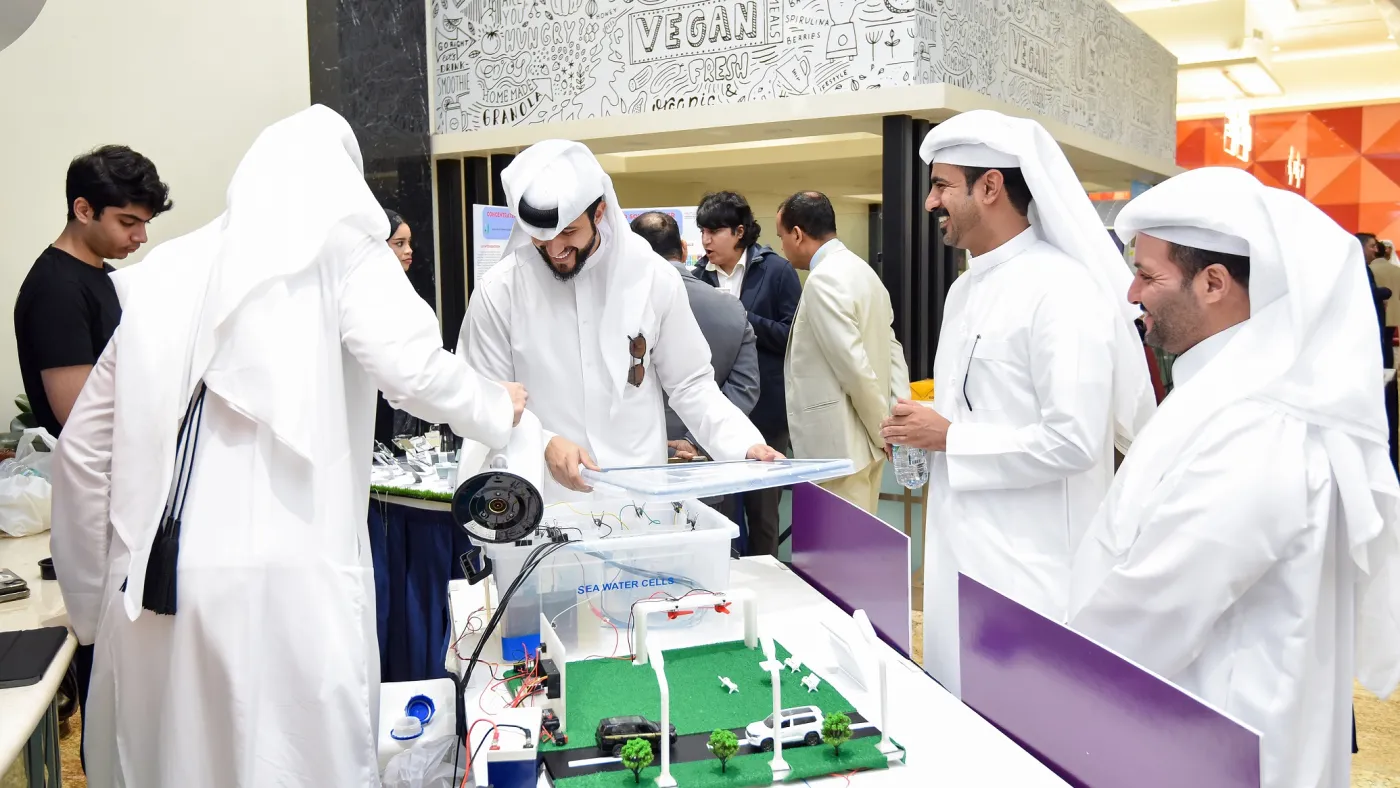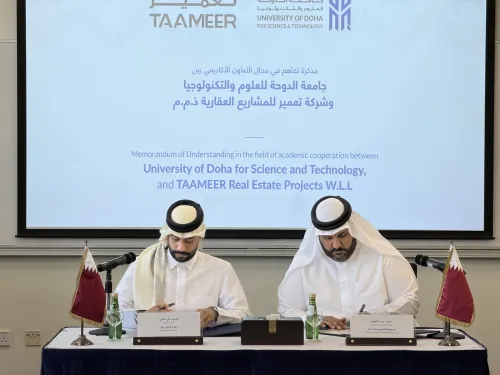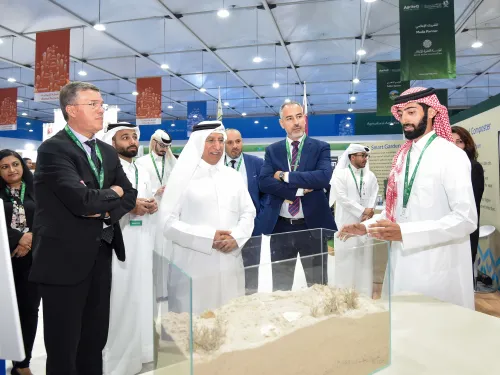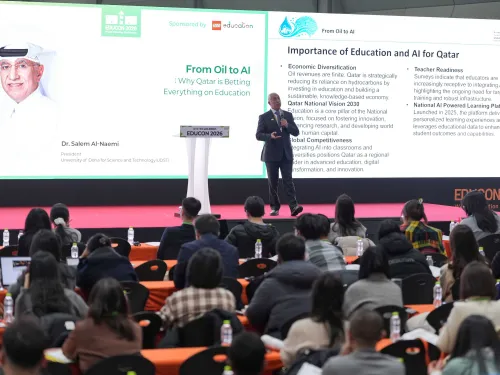
University of Doha for Science and Technology (UDST), together with Chemnitz University of Technology (TU Chemnitz) and The University of Jordan (UJ), organized an event themed "Utilizing Artificial Intelligence and Drone Technology in Sustainable Development", held on UDST campus. The purpose of the day was to raise awareness among university students about the importance of using advanced technology in reaching sustainability targets, and ultimately help combat climate change.
Notably attending the event were Dr. Mohammed Yousef Al-Mulla Vice-Chair of UDST’s Board of Trustees and Managing Director and CEO of Qatar Petrochemical Company (QAPCO).
H.E. Md. Nazrul Islam, Ambassador of Bangladesh to Qatar, and Wolfram Hardt, Chair of Computer Engineering at Chemnitz University of Technology who both delivered presentations highlighting their recent achievements and experiences in relation to Sustainable Development Goals (SDG). Delegates from leading industry giants such as Schlumberger, TotalEnergies, QAPCO, and Swiss-Cos have also attended this event. Dr. Rachid Benlamri, UDST’s VP Academics, and Dr. Awni Al-Otoom, Dean of the College of Engineering and Technology commenced the day by delivering an inspirational welcome address.
The event was split into two parts, the first half featured a selection of insightful talks and lectures from across the public and private sectors, and the second was dedicated to an interactive pitching session where students presented 18 innovative business projects to a panel of judges. The event included an exhibition and a hackathon, two integral parts of the “Smart. Eco” project which seeks to facilitate dialogue and establish a robust network between participating universities in Qatar, Jordan and Germany.
Commending the event, Dr. Salem Al-Naemi, President of UDST, said: “Organizing this Smart.Eco event is a great example of how much we value a collaborative and knowledge-sharing culture at UDST, as well as our proactive approach towards sustainability. It is imperative to harness cutting-edge technology when tackling global issues like climate change. We want our students to understand the vital role advanced technology plays in addressing these issues, and it is wonderful to see them bring such innovative solutions to the table, incorporating leading-edge technology such as drones and artificial intelligence. At UDST, we are committed to creating responsible leaders who will innovate for the well-being of our planet, and help the country attain its sustainable development goals.”
In preparation for the event, UDST students engaged in an intensive boot camp that offered invaluable feedback and insights for their projects. They also received extensive training in business pitching, which greatly enhanced their presentation skills for the event. The initiative aims to give students and scientists opportunities to gain intercultural skills and further qualifications while strengthening ties with industry partners, which will increase support for research and practical engagements in the field of smart environmental solutions. This year’s event focuses particularly on solutions influenced by artificial intelligence, drones and the Internet of Things (IOT).
The winners of the hackathon were UDST students Mohamed Kurdi, Farah Khattab, Rohail Tahir, Sruthi Udayakumar, Noor Elgergawy, Maheen Tariq who presented the project “Bokashi Composting”, using a decentralized anaerobic composting facility for organic waste disposal. The project “BioCafe” came second, using solar panels and an anaerobic digester to produce biogas.
This project was led by UDST students: Firdous Zain,Mahnoor Ahmed,Nimra Fatima,Rana Elgendy and Abdullah Zidan. In the third position came the student Albaraa Alkilani with his project: Using Drone Cluster and Machine Learning for Search and Rescuing in Natural Disasters
From University of Jordan.



